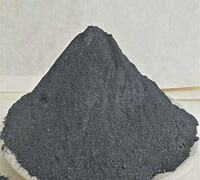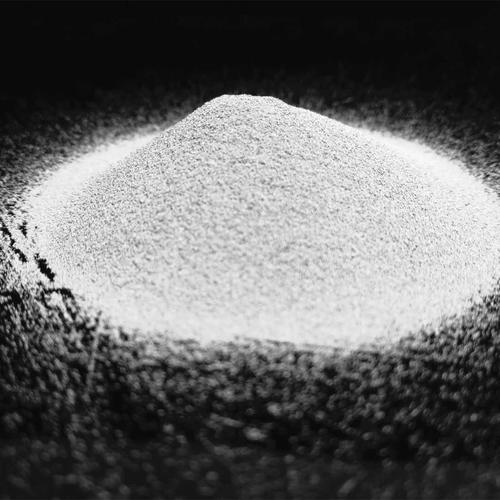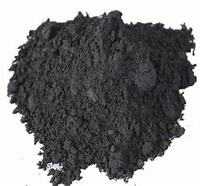1. Introduction
In the past 48 hours, the additive manufacturing sector has seen renewed interest in high-performance metal powders, with titanium powder leading the charge. Major aerospace firms and medical device manufacturers are ramping up orders for spherical titanium powder to meet growing demand for lightweight, corrosion-resistant 3D-printed components. This surge highlights titanium powder’s critical role in next-generation manufacturing.

Titanium powder—often referred to as ti powder—is far more than just a raw material. It’s a gateway to advanced engineering, enabling everything from jet engines to custom orthopedic implants. Whether you’re looking to buy titanium powder for research, industrial use, or additive manufacturing, understanding its varieties, costs, and applications is essential.
2. What Is Titanium Powder?
Titanium powder is a fine particulate form of titanium metal, produced through methods like gas atomization or the hydride-dehydride (HDH) process. Unlike bulk titanium, which is dense and hard to machine, titanium powder offers versatility in manufacturing, especially in powder metallurgy and 3D printing.
It’s important to distinguish between pure titanium powder and titanium alloy powder. While pure grades (like Grade 1 or 2) are used in chemical and medical applications, alloys such as Ti6Al4V (also called Ti64) dominate aerospace and defense due to their superior strength-to-weight ratio.
3. Common Types of Titanium Powder
Not all titanium powders are created equal. Key variants include:
- Spherical titanium powder: Ideal for 3D printing due to excellent flowability and packing density.
- HDH titanium powder: Irregular-shaped, cost-effective, and commonly used in traditional powder metallurgy.
- Ti6Al4V powder: The most widely used titanium alloy powder, especially in aerospace and biomedical fields.
- Titanium nitride powder and titanium carbide powder: Ceramic compounds used for coatings and cutting tools.
- Titanium diboride powder (TiB2) and titanium boride powder: High-hardness materials for wear-resistant applications.
- TiH2 powder: Titanium hydride, often used as a foaming agent or precursor in powder production.
- TiO2 nano powder: A photocatalytic and UV-blocking material, distinct from metallic titanium powder.

Note: Titanium dioxide (TiO2) powder is chemically different from titanium metal powder—it’s an oxide used in paints, sunscreens, and food, not in structural metal applications.
4. Titanium Powder Uses
The applications of titanium powder span multiple high-tech industries:
- Additive manufacturing (3D printing): Titanium powder for 3D printing enables complex, lightweight parts in aerospace, automotive, and medical sectors.
- Aerospace: Jet engines, airframes, and landing gear benefit from titanium’s strength and heat resistance.
- Medical implants: Biocompatible titanium alloy powder is used to 3D print custom hip joints and dental fixtures.
- Pyrotechnics: Titanium flash powder creates bright white sparks (though it’s highly reactive and requires careful handling).
- Coatings: Titanium nitride powder provides gold-colored, wear-resistant surface layers.
Emerging uses include titanium-coated diamond powder for advanced abrasives and burnt titanium powder coat finishes for architectural metals.
5. Pricing and Market Trends

Titanium powder price varies significantly based on purity, particle size, shape, and alloy composition. As of mid-2024:
- Pure titanium powder price per kg ranges from $80 to $200.
- Ti6Al4V powder price typically falls between $150 and $350 per kg.
- 3D printing titanium powder price is higher for spherical, gas-atomized grades due to stringent quality requirements.
Factors influencing titanium powder cost include raw material availability, production method (gas atomized vs. HDH), and global supply chain dynamics. International titanium powder suppliers often adjust pricing based on demand from defense and medical sectors.
When you buy titanium powder, always verify specifications—especially for critical applications like aerospace or implants.
6. Titanium vs. Other Metal Powders
While titanium powder dominates lightweight, high-strength applications, other metal powders serve complementary roles:
- Molybdenum powder (moly powder): Used in high-temperature furnaces and electronics. Molybdenum disulfide powder (MoS2 powder) is a dry lubricant.
- Tungsten powder: Extremely dense and heat-resistant. Tungsten carbide powder is essential for cutting tools and wear parts. Global Tungsten & Powders Corporation is a key player in this space.
Unlike titanium, tungsten powder price per kg can exceed $50 for pure grades, with tungsten carbide powder price per kg often higher due to cobalt binding. Molybdenum powder price is generally lower but varies by form (e.g., ferro molybdenum powder vs. molybdenum metal powder).
7. Where to Buy Titanium Powder
Reputable titanium powder suppliers include both specialized metal producers and global distributors. When searching for titanium powder for sale, consider:
- Certifications (ASTM, ISO)
- Particle size distribution
- Oxygen content (critical for mechanical properties)
- Packaging and handling protocols (titanium dust can be flammable)
Leading suppliers offer everything from titanium nanopowder to bulk HDH titanium powder. Always request a material safety data sheet (MSDS)—especially since fine titanium powder can be pyrophoric under certain conditions.
8. Conclusion
Titanium powder is a cornerstone of modern advanced manufacturing. From enabling life-saving medical devices to pushing the boundaries of aerospace design, its value is undeniable. Whether you’re evaluating titanium powder price per kg for a startup or sourcing ti6al4v powder for industrial 3D printing, understanding the nuances of form, function, and supplier reliability is key. As additive manufacturing continues to evolve, titanium powder—and its alloyed and compound variants—will remain at the forefront of innovation.
Our Website founded on October 17, 2012, is a high-tech enterprise committed to the research and development, production, processing, sales and technical services of ceramic relative materials such as Titanium. Our products includes but not limited to Boron Carbide Ceramic Products, Boron Nitride Ceramic Products, Silicon Carbide Ceramic Products, Silicon Nitride Ceramic Products, Zirconium Dioxide Ceramic Products, etc. If you are interested, please feel free to contact us.
